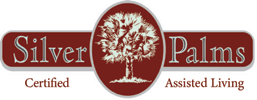It is often challenging for one to choose a senior housing community to move into. Today, seniors are faced with various options regarding where they will be living. Seniors that need assistance around the clock, but not entirely dependent could be an excellent fit for assisted living facilities. Although this can be considered by some, a step from a nursing home. With assisted living, there are many advantages, but also some drawbacks. For this reason, family members and seniors must discuss living preferences early and honestly.
Assisted Living Benefits
There are several benefits from assisted living, including:
- Adapt to changing requirements
- Getting assistance for daily activities, like eating, bathing, dressing.
- Increased privacy with home-like environments.
- No maintaining a home.
- Lower costs compared to a nursing home.
- Chance of socializing via scheduled events.
Also, assisted living provides one significant benefit; it enables seniors that suffer from physical challenges or early stages of dementia to live life independently. Assisted living facilities offer on-site medical care but usually are not staffed around the clock. The level of medical care provided in assisted living is appropriate for those who do not require a full-time nursing home. Instead, they only need assistance with transportation, meals, daily activities, and medications.
Due to the health situation of older adults, flexible living arrangements are offered by assisted living facilities, providing the benefit of fast adapting changes of the senior’s needs.
An assisted living community has active and vibrant seniors that can manage the majority of routines on their own. Therefore, assisted living provides an environment that has more of a home-like atmosphere with the personal privacy and freedom appreciated by many seniors. Thus, seniors do not have to stress over routine property maintenance, such as yard work, which may become challenging.
In addition to a more significant amount of privacy and control for residents, assisted living also offers the chance of socializing. As many seniors become isolated and lonely when living at home, this can be a benefit to keeping them active. Residents of assisted living facilities get the opportunity to socialize with others daily and have a variety of scheduled events, such as crafts, dancing, outings, and exercise.
Generally, there is a lower monthly cost associated with assisted living compared to nursing homes, because constant medical care is not offered. Additionally, there are types of financial assistance available with veteran’s programs and long-term insurance programs.
Assisted Living Drawbacks
There are some drawbacks to assisted living, including:
- Some seniors may have issues adapting to policies and/or group settings.
- It can become cost-prohibitive.
- It doesn’t provide the medical care needed for specific medical conditions and moderate dementia.
Unlike a nursing home, assisted living facilities do not provide extensive medical care on-site.
Many seniors prefer staying within their home and have issues with adjusting to the facility’s policies and group environment. Some facilities offer different room types, including semi-private rooms, in which seniors may find a roommate to be challenging. Also, there could be specific policies, such as smoking bans or pet policies, that make adjusting challenging.
Another major downside for many seniors is the cost. Medicare will not cover assisted living facilities. Also, personal care is often treated as an additional charge to the monthly expenses.
Overall, assisted living is an option that provides a secure and safe environment for seniors that are not entirely dependent. Still, it might not be the best option for all. The choice between assisted living facilities or other types of senior living will require long-term health consideration, needs, and senior’s personal preferences.

